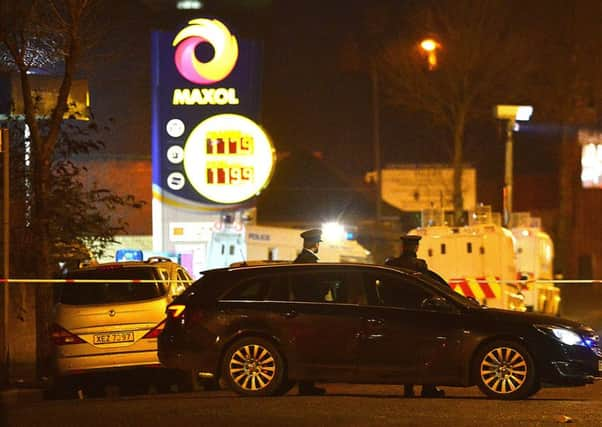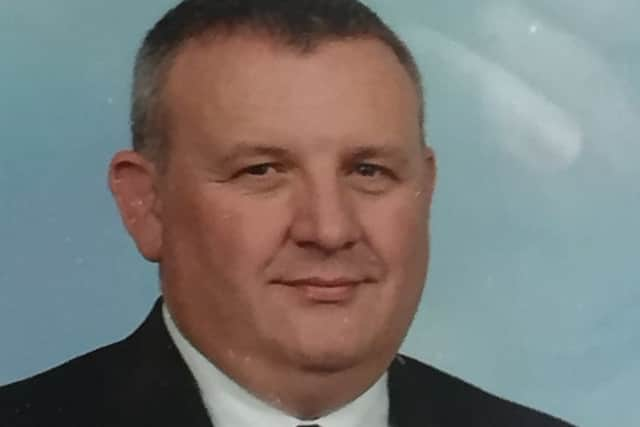Ben Lowry: We should not merely condemn dissident attacks after they happen, we must ask hard questions now


The terrorists were clearly determined to murder an officer, so it is reasonable to fear that in the coming weeks or months another PSNI officer or group of officers will be killed in a similar incident.
Advertisement
Hide AdAdvertisement
Hide Ad

Or perhaps one of the republican bombs that are now being found and made safe will explode and murder members of the security forces. Such a blast might even happen in a place where it kills civilians.
We know that in any of the above eventualities, two things will happen:
First, there will be cross-party, cross-border, cross-UK and perhaps international condemnation of the murderers, expressions of revulsion and sympathy for victims.
Second, there will be close scrutiny of the security forces and their response to the dissident threat prior to the attack.


Did they act on warnings?
Did they respond efficiently on the day in question?
Advertisement
Hide AdAdvertisement
Hide AdDid they arrest people quickly enough in the aftermath? And so on.
It is possible that somebody somewhere will complain to the ombudsman about PSNI failings, and a major probe will be launched.


That might well be appropriate. But we must, as a society, send out a signal now that in this increasingly likely scenario of terror deaths we will not let scrutiny fall solely on the PSNI – the very people most at risk from this terrorism, alongside prison officers.
We must make clear that we will ask questions about wide-ranging failures in the response to this urgent threat.
Advertisement
Hide AdAdvertisement
Hide Ad• There is the failure to get behind the intelligence agencies, now a key line of defence as they frantically try to gather information (and, we should hope, recruit informers) on the murder gangs. Will the SDLP concede it was wrong to stand outside MI5 HQ with spook signs some years ago?
• There is the lenient bail policy towards serious dissident charges, on which we have reported for months – well before the McLaughlin case. Bail is granted for offences including murder and often amended to facilitate holiday breaks by the defendants.


After the McLaughlin disappearance, the matter took weeks to come before Stormont. When it did the Greens and SDLP could not even bring themselves to back a motion stating that there is a problem with bail policy in NI. Needless to say Sinn Fein didn’t.
It took the Alliance Party and the Justice Minister Claire Sugden a week to say anything about the McLaughlin scandal (until this newspaper asked).
Advertisement
Hide AdAdvertisement
Hide AdBBC Northern Ireland did not even update the story beyond its court report in the weekend after the extraordinary news of the abscond.
• There is the hopelessly lenient sentencing policy for serious dissident offences.
The state has a duty to protect life. Yet it is not at all clear that the authorities see any risk of failure in that role.
See below a full set of links to Adam Kula’s outstanding coverage of the twin bail and sentencing scandals.
Advertisement
Hide AdAdvertisement
Hide Ad

Scroll through the stories. Note that when we ask prosecutors why they did not appeal one feeble sentence after another, they typically say there were no grounds.
Note that when we ask the courts, they say sentencing is for judges and that they do not comment on individual cases.
Note, as cited above, the passivity of many politicians.
And note that the state broadcaster seems not to be investigating these questions with the urgency they deserve.
Again ask yourself: when someone loses their life, are we merely going to say ‘how tragic’ and accept at face value the universal condemnations as a sign that we all did what we could to prevent it?
Ben Lowry (@BenLowry2) is News Letter deputy editor
• Links to previous bail scandal stories:
Advertisement
Hide AdAdvertisement
Hide AdAdvertisement
Hide AdAdvertisement
Hide AdAdvertisement
Hide AdAdvertisement
Hide AdAdvertisement
Hide AdAdvertisement
Hide AdAdvertisement
Hide AdAdvertisement
Hide Ad